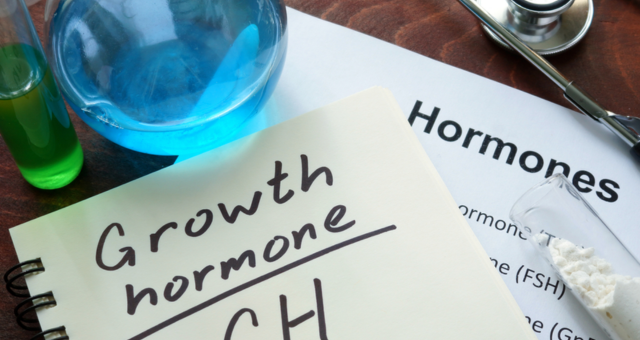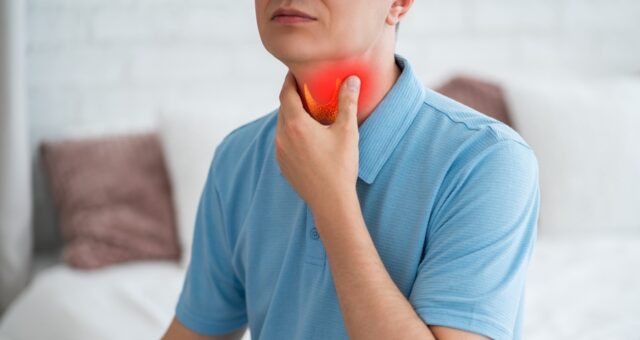Medically Reviewed by Lucas Rosa, PhD in Molecular Biology
Ever had a great workout, laughed till your stomach hurt, or enjoyed a delicious meal — and suddenly felt an amazing rush of happiness or calm? That’s no accident. It’s the work of your feel good hormones.
Feel good hormones play a major role in shaping your mood, energy, and even how connected you feel to others.
When they’re balanced, you feel more vibrant, focused, and content. When they’re off, you might feel sluggish, anxious, or just “off.”
In this blog, we’ll explore what feel good hormones are, how they work in the body, and practical, natural ways you can keep them balanced.
What Are Feel Good Hormones?
Feel good hormones are a group of chemicals your body naturally produces that influence your emotional well-being. While many hormones affect how we feel, four key players are most commonly associated with happiness and pleasure:
- Dopamine – The reward and motivation hormone
- Serotonin – The mood stabilizer
- Oxytocin – The bonding and love hormone
- Endorphins – The natural painkiller and euphoria booster
These hormones affect everything from your motivation and focus to your ability to feel joy, empathy, and calmness.

Functions of Feel Good Hormones
Let’s break down what each of these hormones does and how they contribute to your emotional health.
1. Dopamine: The Reward Hormone
- Released when you achieve something, eat delicious food, or check a task off your list.
- Encourages motivation, focus, pleasure, and productivity.
- Too little dopamine can lead to low motivation or even depression.
2. Serotonin: The Mood Stabilizer
- Helps regulate mood, appetite, sleep, and memory.
- Balanced serotonin contributes to a feeling of well-being and calm.
- Low serotonin is often linked with anxiety, depression, and insomnia.
3. Oxytocin: The Bonding Hormone
- Released during hugs, physical touch, childbirth, and moments of connection.
- Promotes feelings of love, trust, and empathy.
- Important for emotional bonding and social connection.
4. Endorphins: The Natural Pain Relievers
- Released in response to physical activity, pain, or stress.
- Reduces pain and triggers feelings of euphoria – often called a “runner’s high.”
- Helps improve resilience and reduces discomfort.
Signs of Imbalanced Feel Good Hormones
When these hormones aren’t balanced, you may notice:
- Low energy or motivation
- Mood swings or irritability
- Trouble sleeping
- Feeling disconnected or lonely
- Increased sensitivity to pain
- Anxiety or depression
- Cravings for sugar, junk food, or alcohol
If you’re feeling “off” emotionally or mentally, your feel good hormones might need some attention.

Natural Ways to Boost Feel Good Hormones
The best part? You can support and boost these hormones naturally through simple, daily habits.
1. Get Moving
Regular exercise increases endorphins and dopamine while improving serotonin levels. Even a 20-minute brisk walk can lift your mood. Try dancing, swimming, cycling, or strength training. (1)
2. Prioritize Sleep
Your body produces and regulates hormones during sleep. Aim for 7–9 hours of restful sleep each night to keep serotonin and dopamine balanced.
3. Enjoy Physical Touch
Hugging, cuddling, massages, or even petting your dog increases oxytocin levels. (2) Physical connection truly has healing power.
4. Practice Gratitude
Regularly writing down things you’re thankful for can increase dopamine and serotonin. It trains your brain to notice the positive, releasing feel good hormones more often.
5. Eat Brain-Boosting Foods
Certain nutrients support the hormonal production of dopamine and serotonin: (3)
- Tryptophan-rich foods (like turkey, eggs, and cheese) help make serotonin.
- Tyrosine-rich foods (like almonds, bananas, and avocados) help make dopamine.
- Dark chocolate, chili peppers, and omega-3 fats support endorphin release.
6. Connect With Others
Meaningful social interaction – even a quick chat or compliment – can spike oxytocin and serotonin. Humans are wired for connection. (4)

7. Meditate and Breathe
Mindfulness, deep breathing, and meditation lower cortisol (the stress hormone) (5) and increase serotonin and dopamine. Just five minutes a day can make a big difference.
8. Laugh More
Laughter boosts endorphins and lowers stress. Watch a funny movie, hang out with someone hilarious, or follow your favorite meme page – it’s medicine for your mood.
When to Seek Professional Help
While daily habits can support feel good hormones, chronic imbalances may need medical or psychological support. Speak with a healthcare provider if:
- You’ve felt persistently down, anxious, or disconnected for weeks
- Lifestyle changes don’t improve your mood
- You’re struggling with sleep, appetite, or focus
- You have symptoms of depression or anxiety that interfere with daily life
Hormonal imbalances, neurotransmitter issues, or underlying conditions may be at play – and addressing them can help you feel like yourself again.
Conclusion
Your feel good hormones play a powerful role in how you think, feel, and show up in life. When these hormones are in sync, you feel happier, calmer, and more connected. When they’re off, even the simplest things can feel harder.
The good news? You don’t need fancy supplements or complex routines to boost them. With small daily actions, you can naturally support your feel good hormones and create lasting emotional wellness.
Feeling good isn’t just about luck – it’s about chemistry. And now you know how to tip the scale in your favor.
References
- Basso JC, Suzuki WA. The Effects of Acute Exercise on Mood, Cognition, Neurophysiology, and Neurochemical Pathways: A Review. Brain Plast. 2017 Mar 28;2(2):127-152. doi: 10.3233/BPL-160040. PMID: 29765853; PMCID: PMC5928534. https://pmc.ncbi.nlm.nih.gov/articles/PMC5928534/.
- Schneider E, Hopf D, Aguilar-Raab C, Scheele D, Neubauer AB, Sailer U, Hurlemann R, Eckstein M, Ditzen B. Affectionate touch and diurnal oxytocin levels: An ecological momentary assessment study. Elife. 2023 May 30;12:e81241. doi: 10.7554/eLife.81241. PMID: 37252874; PMCID: PMC10229112. https://pubmed.ncbi.nlm.nih.gov/37252874/.
- Firth J, Gangwisch JE, Borisini A, Wootton RE, Mayer EA. Food and mood: how do diet and nutrition affect mental wellbeing? BMJ. 2020 Jun 29;369:m2382. doi: 10.1136/bmj.m2382. Erratum in: BMJ. 2020 Nov 9;371:m4269. doi: 10.1136/bmj.m4269. PMID: 32601102; PMCID: PMC7322666. https://pmc.ncbi.nlm.nih.gov/articles/PMC7322666/.
- Nickels McLean N, Maestripieri D. Hormonal responses to brief social interactions: The role of psychosocial stress and relationship status. PLoS One. 2023 Jun 23;18(6):e0287153. doi: 10.1371/journal.pone.0287153. PMID: 37352264; PMCID: PMC10289427. https://pmc.ncbi.nlm.nih.gov/articles/PMC10289427/.
- Turakitwanakan W, Mekseepralard C, Busarakumtragul P. Effects of mindfulness meditation on serum cortisol of medical students. J Med Assoc Thai. 2013 Jan;96 Suppl 1:S90-5. PMID: 23724462. https://pubmed.ncbi.nlm.nih.gov/23724462/.
Check Out
HF Swaps
Better products for better hormone health.









